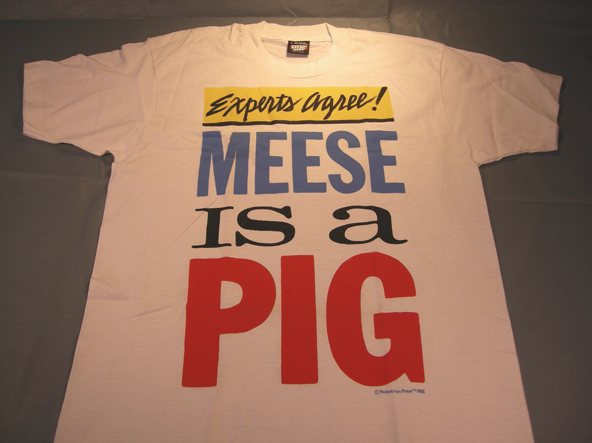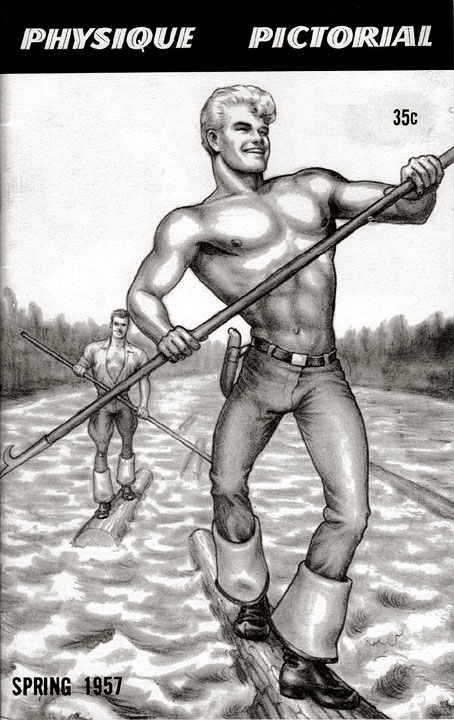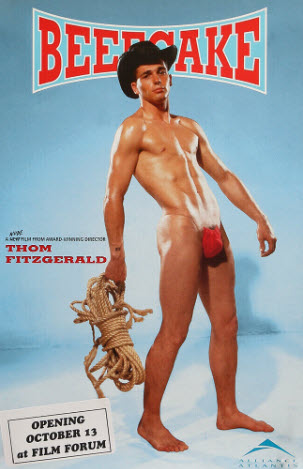Mizer known for his lengthy responses to readers’ letters
The editors of most magazines welcome letters to the editor, allowing readers to praise, question or criticize editorial decisions made by the...
2 min read
Bob Mizer Foundation : Updated on April 6, 2024

Only 16 years after a presidential commission recommended loosening restrictions on the availability of adult materials, members of a second commission claimed that a connection exists between pornography and organized crime.
In the mid-1980s, U.S. President Ronald Reagan organized the Attorney General’s Commission on Pornography, named for then-U.S. Attorney General Edwin Meese. The commission’s findings were referred to as “The Meese Report.” Unlike the 1970 commission’s findings, the Meese Report advocated for greater restrictions on the availability of pornography, encouraging U.S. citizens to boycott those merchants that made such materials available for sale. The commission’s members came from a variety of backgrounds and vocations, including politicians, religious leaders, and sociologists.
The commission reported its belief that rising sales of pornographic magazines and videotapes was to blame for an increase in criminal behavior, especially in larger metropolitan areas, blatantly contradicting an opinion that had been put forth by the 1970 commission that pornography had no connection to a rise in crime. The commission also reported a “casual” relationship between consumption of pornography and one’s likelihood to commit acts of sexual violence.
Media outlets from coast to coast were quick to blast the Meese Report as a witch hunt. Religious witnesses who contributed to the report stated that adult materials “warped” the consumer’s view of sex, while feminists decried pornography’s objectification of women. It was perhaps the first time both camps came together in agreement of a single social issue. Dr. Richard Green, writing in a July 1986 column in The Los Angeles Times, wrote: “Pornography is an easy first target. There are enough persons frightened by their own sexuality and that of others that they want any suggestions of it hidden or erased; there are enough zealots heaven-bent on minding their neighbor's business, and those to whom thoughtful consideration suggests that pornography is harmful, to forge a coalition of censorship. Strange bedfellows indeed, Jerry Falwell and Linda Lovelace.”
In an unsurprising act of censorship, every major U.S. publishing house declined to print the report. Eventually, however, the 1,960-page Meese Report was published by the small publishing house Rutledge Hill Press in Nashville. The report, unlike its 1970 predecessor, was published without the pornographic images included in the commission’s study. According to an October 1986 article in The New York Times, more than 30,000 copies were sold to religious organizations nationwide, at only $9.95 apiece. Copies of the book were shipped to vendors in a plain, brown wrapper with a warning that the content inside contained material of a sexual nature that might offend some readers.
''It's interesting, isn't it,'' observed Michael J. McManus, who penned the 41-page introduction to the report, in the same New York Times article, ''that the publishers who are most loudly opposed to censorship won't publish a document they don't agree with?”
The American Civil Liberties Union, meanwhile, blasted the Meese Report as ‘disgraceful and farcical.’ Editorials from The New York Times, The Los Angeles Times, and The Chicago Tribune criticized not only the commission’s report, but Meese himself, painting him as a weak and ineffectual steward of the U.S. Justice Department who was solely obsessed with bringing down the $8 billion porn industry. One ACLU summed up the commission’s flawed findings as "little more than prudishness and moralizing masquerading behind social science jargon. All that this government study proves is that if you give a biased pro-censorship commission a half million tax dollars and a year, they will write a lopsided, pro-censorship report."

The editors of most magazines welcome letters to the editor, allowing readers to praise, question or criticize editorial decisions made by the...

As a model, Richard Reagan displays a self confidence that makes you believe he is among the best on The Beach. He was photographed during one...

There's plenty to enjoy about the very first full-length film about Bob Mizer -- but there's plenty of misinformation to address, too.